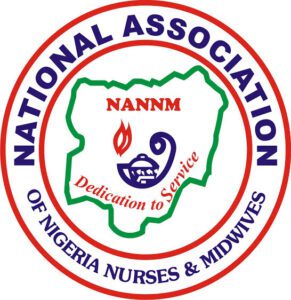
WHO to spend $9m to accelerate COVID-19 vaccination in 15 Nigerian states
The World Health Organisation (WHO) is set to spend $9m to accelerate COVID vaccination in 15 Nigerian states.
The amount which is a grant from the Canadian Government to the Nigerian Federal Government will be deployed to the 15 lowest performing states in COVID-19 vaccination in Nigeria.
The donation came as the federal government declared that while it had made significant progress in its vaccination efforts, several states have primary series coverage below 70 per cent and booster doses account for just over 20 per cent of vaccinations.
The donation was announced by the Canadian High Commissioner to Nigeria, Jamie Christoff during launch of the Canada Global Initiative for Vaccine Equity, CanGIVE Grant in Abuja by the Federal Ministry of Health in collaboration with the National Primary Health Care Development Agency, NPHCDA.
Canada Global Initiative for Vaccine Equity, CanGIVE, is a two-year grant of $9,261,920 from Global Affairs Canada to the World Health Organisation, WHO to support the scale-up of COVID-19 vaccine service delivery among priority risk groups and strengthen health systems in Nigeria.
High Commissioner of Canada to Nigeria, Mr Jamie Chrisoff, said that Canada instituted CanGIVE- a alobal initiative of 317 million Canadian dollars to respond to country priorities for COVID-19.
He said it also meant to build on Canada’s long-standing global commitment to support health systems.
Chrisoff said the WHO project would be implemented in seven countries, with Nigeria receiving the highest share of 9.3 million dollars.
According to him, Nigeria is also among the first set of countries to receive COVID-19 vaccine doses from Canada in September of 2021.
WHO Country Representative, Dr Walter Mulombo said this on Wednesday in Abuja during the launch of Canada Global Initiative for Vaccine Equity (CanGIVE) grant.
Mulombo said that the grant would be implemented in the 15 lowest performing states of Benue, Kogi, Taraba, Katsina, Kebbi, Anambra, Ebonyi, Akwa Ibom, Bayelsa, Delta, Edo, Rivers, Lagos, Ogun and Ondo.
“It will help to mainstream and integrate gender-responsive, equity-based and human rights-focused interventions that promote leaving no one behind agenda in the country.
“The grant has come at the right time to help improve coverage and uptake of the vaccine among the priority populations in line with the current WHO SAGE roadmap on uses of COVID-19 vaccines,” he said.
According to him, Nigeria has made progress in the fight against COVID-19.
He said that as of July 17, 2023, 77,285, 627 persons in Nigeria have completed the primary series of COVID-19 vaccination, with, 87,838,137 persons receiving at least one dose of the vaccine.
“Also, 16,011,524 of those who have completed the primary series have received a booster dose of the vaccine,” he said.
Mulombo said that in spite of the achievement, there was still more work to be done.
“As of now 14 states are performing less than 50 per cent vaccination coverage of their target population, and we still have some vulnerable populations that are not sufficiently covered.
“Key among these subgroups are the aged (50years and above), people with co-morbidities, the health workers, people living in humanitarian and security compromised communities and the pregnant women,” he said.
Mulombo said that WHO Director General’s declaration that COVID-19 was no longer a Public Health Emergency of International Concerns (PHEIC) marked a turning point in the control of the pandemic.
He said the declaration however did not mean COVID-19 was over as a global and national health threat.
“Though considerable achievements have been made, we are still at risk of the infection as cases are still being reported in a number of countries.
“I will like to take this opportunity to caution all of us on the need to continue protecting ourselves by completing the primary series of COVID-19 vaccination.
“For those who have completed should continue with the booster dose schedule,” he said.
Mulombo assured the Ministry of Health that WHO would continue to collaborate with partners to support the government’s effort to protect vulnerable segments of the population and the structures and health systems were strengthened.
“We shall continue to provide technical support to implement one health approach to preparedness and response, and integrate COVID-19 surveillance and response activities into routine health programmes.
“Together with partners and the government we will dedicate sustained attention and resources to preparedness and resilience to counter future threats,” he said.
Mulombo appreciated the support from the Canadian government through the CanGIVE grant.



